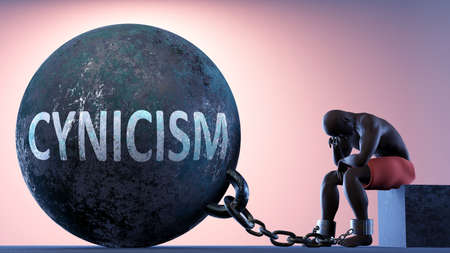Thoughts on Parashat Emor.
The idea that man was created in the image of God is a fundamental claim about human nature and binds all mankind together as a single race. The very idea is at the same time the foundation of universalist ethics, the only ethics that has a chance to be true, because it is the antithesis of ‘tribal ethics’, that suggest that people from different groups, national or religious, should be treated differently because they are ‘a different kind of people’, or ‘people of a different nature’ etc. One of the fundamental features of Nazism was precisely the negation of the thesis of the unity of mankind, and this negation opened the way to the negation of the humanity of Jews as well as other groups inhabiting Europe in the twentieth century. Denying the humanity or full humanity of some people is always a dreadful game that ultimately leads to various atrocities and monstrosities.
This week Torah portion contains a story of a man who sinned with blasphemy:
And the son of a Yisra᾽elite woman, whose father was a Miżrian man, went out among the children of Yisra᾽el: and this son of the Yisra᾽elite woman and a man of Yisra᾽el strove together in the camp; and the Yisra᾽elite woman’s son blasphemed the name of the Lord, and cursed. And they brought him to Moshe: (and his mother’s name was Shelomit, the daughter of Divri, of the tribe of Dan: ) and they put him in custody, that the mind of the Lord might be shown them. (Leviticus 24:10-12)
The man was stoned to death, as a result of the Divine decree passed through Moses:
And he who blasphemes the name of the Lord, shall surely be put to death, and all the congregation shall certainly stone him: both the stranger, and he that is born in the land, when he blasphemes the name of the Lord, shall be put to death. (Leviticus 24:16)
The rabbis, of course, analyzed many aspects of this divine judgment and the law that followed from it: from the identity of the sinner to the broad context of the events that took place around this biblical story. We, modern people, may be offended by the brutal punishment for blasphemy: these are only words! How can you kill someone for just ‘saying something’?
For our Rabbis, however, blasphemy wasn’t mere ‘saying something’. Blasphemy is a debasement of human dignity, it is the ultimate erasure of the Divine image in man. As it is put in Sefer Hachinuch:
By such evil utterance man divests himself of his goodness and all his innate dignity becomes destructive. He becomes a beast. He abuses the very thing which sets him above the beast – the gift of speech… ….The Torah warns us against this since the beneficent Deity desires our wellbeing and every utterance that undermines it violates His wishes.
We may, and actually should, disagree with the idea of capital punishment as a proper punishment for blasphemy. But we should agree with the rabbis that verbal degradation and violation of human dignity is not mere ‘saying something’. It’s a dangerous game that opens a path to cruel deeds and serves at the same time as a justification of these deeds. It doesn’t really matter what kind of political/religious ideology proclamations like these serve. In my opinion it also doesn’t really matter if this language targets certain groups of people or humanity in general: for example, some people like seeing humanity as a cancer of the planet earth. For me all kinds of statements like that hide some genocidal sentiments. Even if it is not meant to be understood literally, such comparisons are just awful; someone else can always take it literally and employ it in a hateful ideology.
Let us then ask God to constantly help us rise above the level of the beast, to constantly engrave the Divine image in us and to let us see the Divine image in every human being we come across. By doing this we increase an amount of Holy, Divine light in the world, the light that is the source of our life, our sustenance and that allows us to reach the stars.
Shabbat shalom!
Menachem Mirski
This d’var Torah was commissioned by Beit Polska
– Union of Progressive Jewish Communities in Poland.

